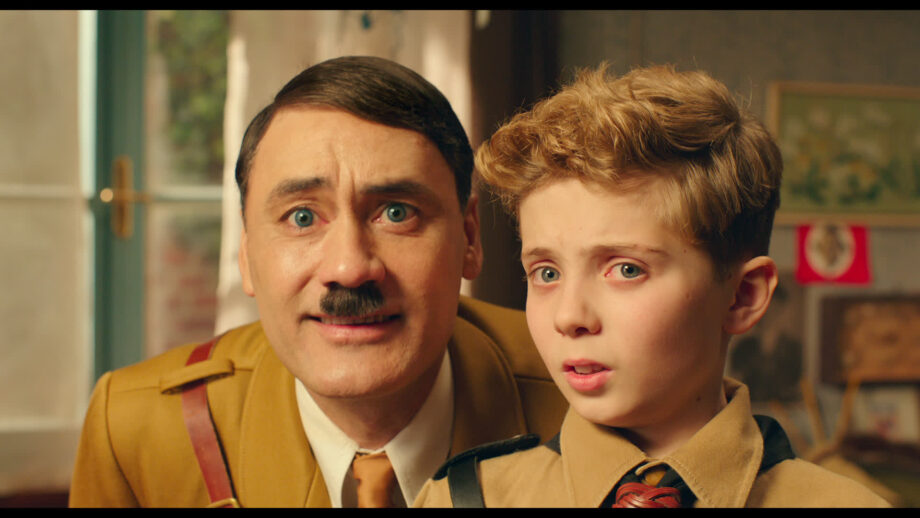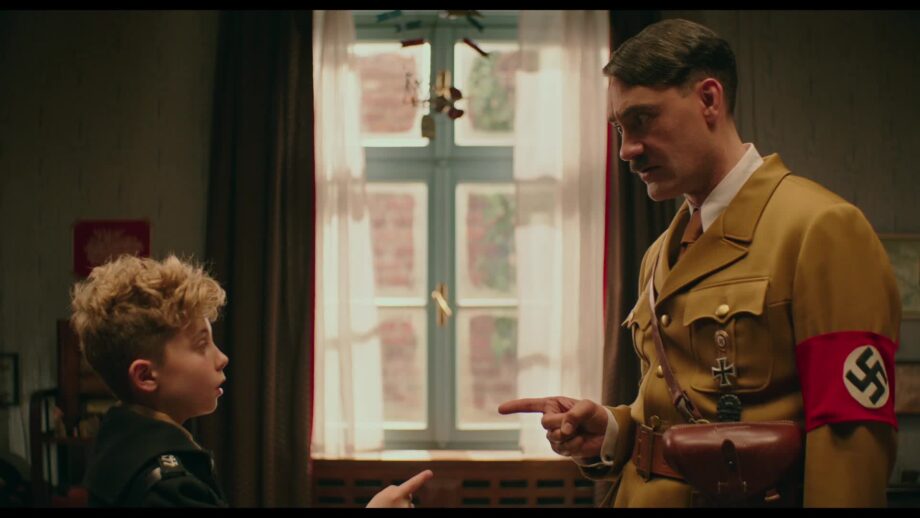Jojo Rabbit, Taika Waititi’s picture, has polarised both critics and audiences—and rightly so. The film, which has been dubbed an “anti-hate satire,” depicts the narrative of Johannes “Jojo” Betzler, a ten-year-old German kid who struggles to find social belonging and direction as he grows up during World War II. Jojo relies largely on the direction of an imaginary buddy who takes the form of Adolf Hiter—played here by filmmaker Waititi, a Maori man of Jewish descent—in the absence of his father, who has gone off to war. Jojo’s antisemitism, nationalism, and imagined friendship are tested when he builds a bond with Elsa, a Jewish girl hiding in his attic, despite his involvement in the Hitler Youth.
Educators who teach adolescents about this time period may be intrigued by the video, but their job is to counteract the reductive myths it repeats about what causes hatred by providing meaningful, accurate Holocaust teaching.
As the film begins, we witness Jojo getting initiated into the Jungvolk, or Hitler Youth, an organization that the lonely child has long desired to join. Jojo is bullied by older members because of his frailty and sensitivity, so he seeks comfort from his imaginary companion, Hitler. Waititi appears to be implying in this film that many people’s vile views gain value as a result of emotions of social alienation, powerlessness, and even a shaky sense of masculinity. While this idea may help us comprehend hate, it reduces complicated social and political issues (such as long-standing antisemitism, propaganda, and self-interest) to individuals’ psychological fragility, isolation, and susceptibility.
Waititi’s absurdist portrayal of Hitler and the Nazis, while clearly designed to encourage amusement, inhibits serious contemplation of the historical past, as well as one’s own role in contemporary antisemitism. Antisemitic jokes abound, as do people saluting Hitler repeatedly and cartoonishly, as well as other startling scenes, such as characters contorting their bodies into the shape of swastikas as part of an unusual fitness regimen. What could possibly be the objective of such cruelly irreverent pyrotechnics—and an accompanying lack of emotional sincerity or earnest historical explanation—other than to generate self-righteous laughing that says, “Can you believe how foolish the Nazis were?” “That’s not me!” exclaims the narrator. But it is precisely this kind of thinking that has to be shattered.
Waititi’s cartoonish show may only redirect attention away from the types of hate that do suffuse our nations and communities in a world where more subtle expressions of hate remain ubiquitous and unnoticed.
Even in the film’s last act, when Jojo confronts Hitler, he doesn’t seem to see the consequences of his actions on Jewish people like Elsa, treating her solely as a fascinating object who has exposed his ignorance rather than a complicated individual in her own right. Perhaps the filmmaker intended this to suggest that, even when people dispute aspects of their bigoted views, a single act of defiance is inadequate to overthrow long-held ideologies. Or that those who claim to be anti-hate can do so despite a shocking lack of empathy and self-awareness. However, Waititi fails to conduct the necessary research to deliver a powerful message, and the film ends with yet another ludicrous scenario that raises more questions than it answers.
Though several Jewish critics have praised the film, notably Tablet Magazine’s Liel Liebovitz, we must consider the potential that spectators may not get the joke that Waititi has sought to make—especially in the current atmosphere of escalating hatred and deepening ignorance.
According to research, 66% of American millennials have never heard of the Auschwitz concentration camp, and 22% have never heard of the Holocaust. Educators who are qualified to provide crucial historical lessons are more important than ever before, given the lack of knowledge and the growth of media that masquerade as historical facts. We must help our children develop media literacy and fight the urge to check their critical thinking skills at the door.
Facing History and Ourselves uses historical teachings to encourage instructors and students to speak out against bigotry and hatred. And our work goes beyond simple denunciations of hateful statements to emotionally engage young people, foster empathy, and cultivate self-awareness—all of which are essential in combating hatred in our communities. Our seminal case study, Holocaust and Human Behavior are available for educators to utilize in the classroom. As per article by The New Yorker.




